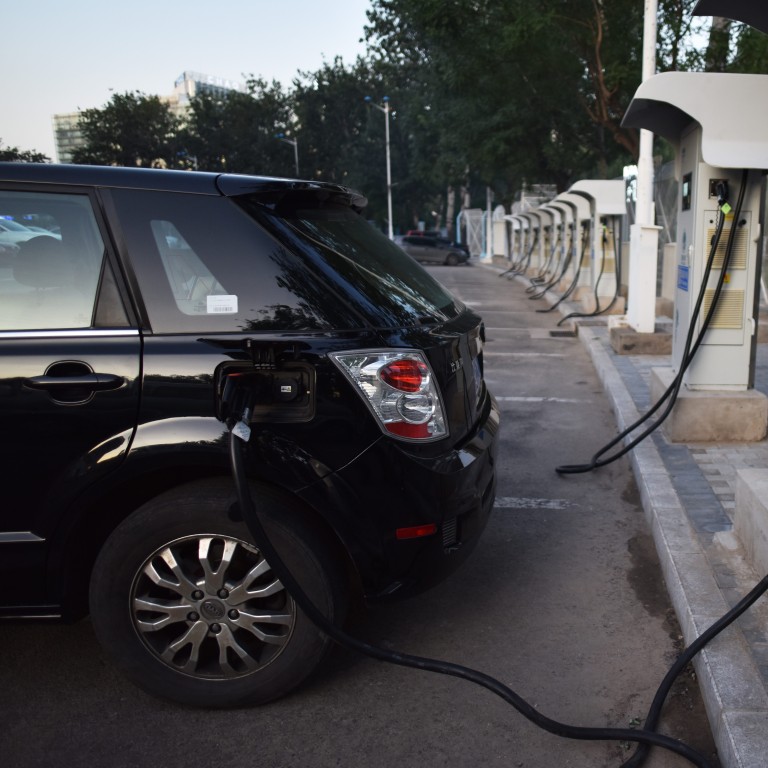
China’s new energy vehicle sales more than halved in January, as Covid-19 weighs on world’s largest car market
- Sales of NEVs sink 54.5 per cent, China Association of Automobile Manufacturers says
- Outbreak will continue to affect production and sales in the coming months, analyst says
The sales of new energy vehicles (NEVs) in China sank 54.5 per cent in January, the China Association of Automobile Manufacturers said on Thursday.
Sales of NEVs, which include pure electric and plug-in hybrid cars, dropped to 43,700 units last month from 96,000 units in the same period a year ago. The overall sales of vehicles, including passenger cars, trucks and commercial vehicles fell 18 per cent year on year to 1.94 million units, said the association, which is a government-backed industry consortium.
Bolstered by heavy government subsidies aimed at encouraging the use of environmentally friendly cars, NEVs had been a bright spot in China’s carmaking industry between 2014 and June last year. Sales have been dropping since, after Beijing cut these subsidies by up to 60 per cent.
The outbreak of Covid-19, the disease caused by the coronavirus, also affected sales, said Gao Shen, a Shanghai-based independent manufacturing industries analyst. “Concerns about the troubled automobiles sector are mounting because the virus will continue to affect production and sales in the coming months.”
The outbreak, which has killed about 1,300 people and infected about 60,000, originated in China’s central Hubei province. The province is home to Dongfeng Motor, China’s second-largest carmaker by volume. It also makes and sells car in China in partnership with Honda, Nissan, Peugeot-Citroen and Renault. Last year, its sales declined 4 per cent to 2.93 million cars.
Production has been disrupted over the past two weeks in Hubei, which is China’s fourth-largest production centre for vehicles. The province accounts for 9 per cent of the country’s total production volume.
It also accounts for between 4.5 per cent and 5 per cent of China’s total car sales, according to Swiss bank UBS. But Hubei has been under lockdown as part of efforts to contain Covid-19. “While first-time buyers might have a stronger desire to own a private vehicle to shield themselves from a virus, as happened during Sars [severe acute respiratory syndrome] outbreak in 2003, replacement buyers that account for two-thirds of the market might delay their purchases for the time being,” UBS analyst Paul Gong said in a research note. “The epidemic might also hurt purchasing power via the macroeconomy.”
Gong said he expected passenger car retail sales to decline by at least 50 per cent year on year in February. About 20 per cent of capacity will be lost in the first quarter because of plant shutdowns, supply-chain disruption and a quarantined workforce, Gong said.
Chinese automobiles tycoon Li Shufu to merge Geely with Volvo, create powerhouse
Sales of passenger cars, which include cars, sport utility vehicles, minivans and multipurpose vehicles, dropped 7.5 per cent to 21.04 million units in 2019 from the previous year, according to figures from the China Passenger Car Association. It was the second straight year of contraction in the mainland’s car market, as an economic slowdown deterred consumers from splashing out on big-ticket items.
China's car market, the world's largest since 2009, began to lose momentum in June 2018, and has recorded a decline in sales in 18 of the 19 months since. Only in June last year did sales increase 4.9 per cent from a year earlier, thanks to huge discounts offered by dealers looking to clear inventories.

